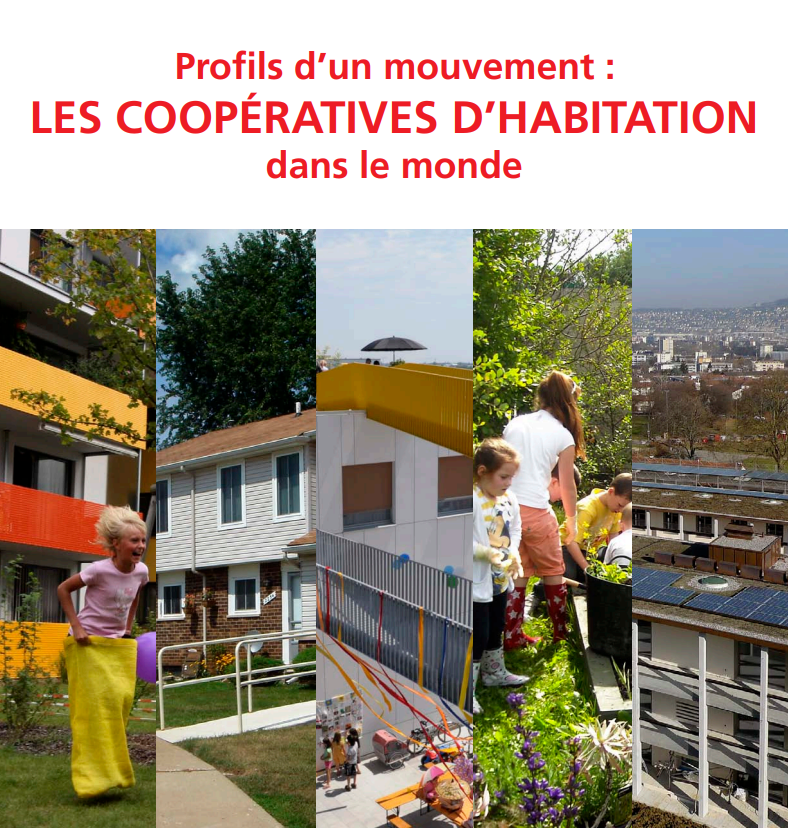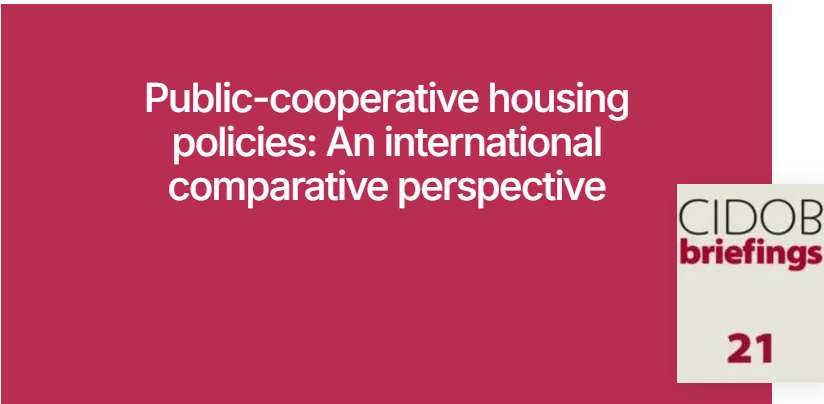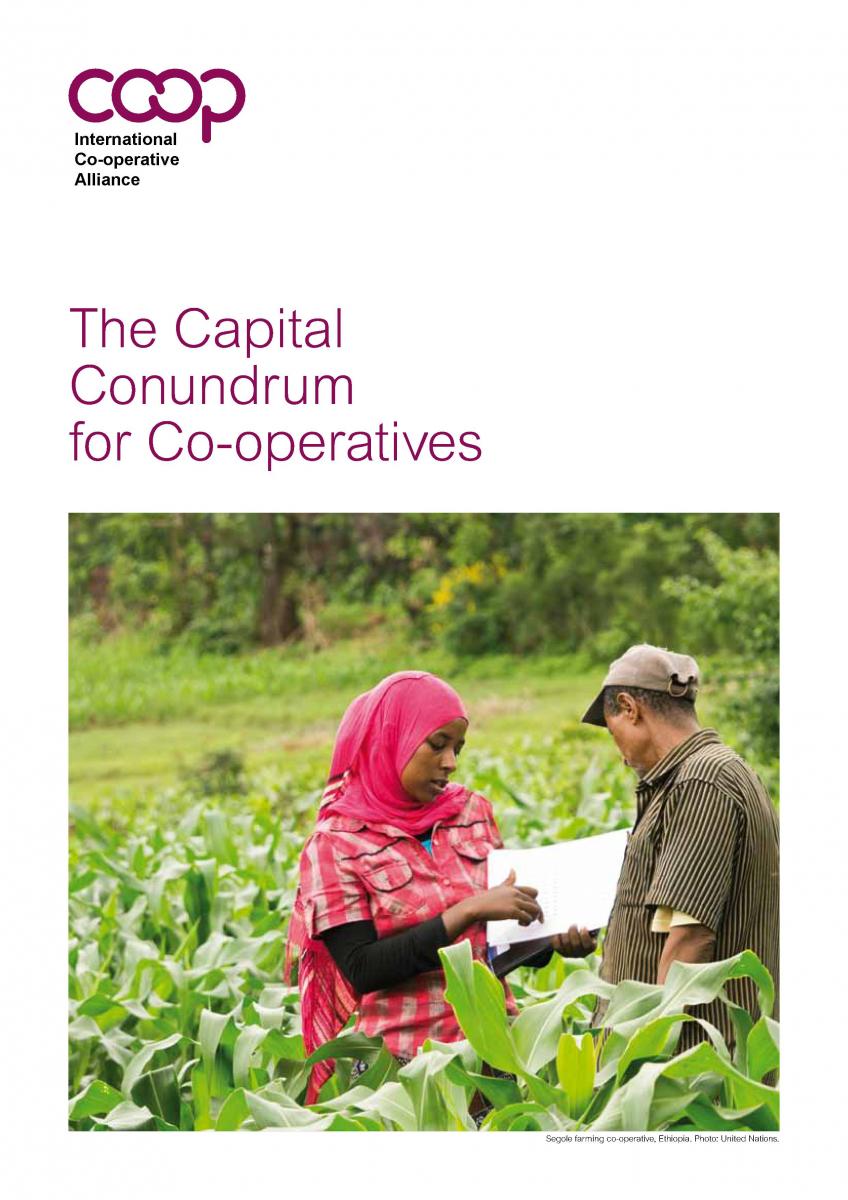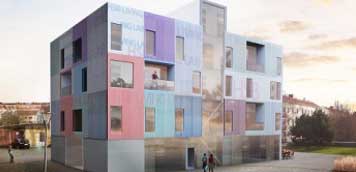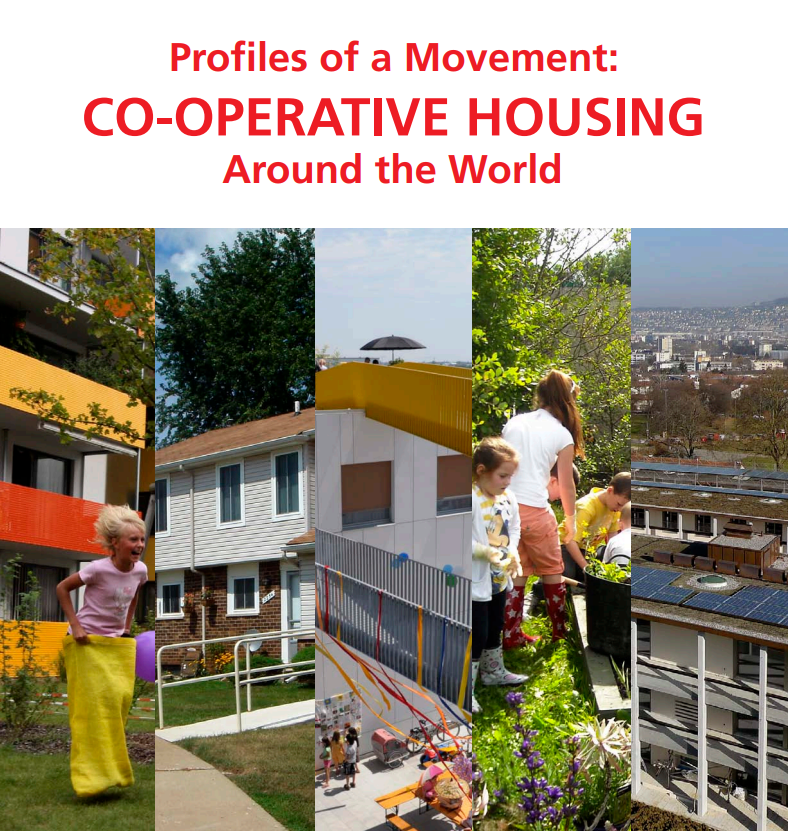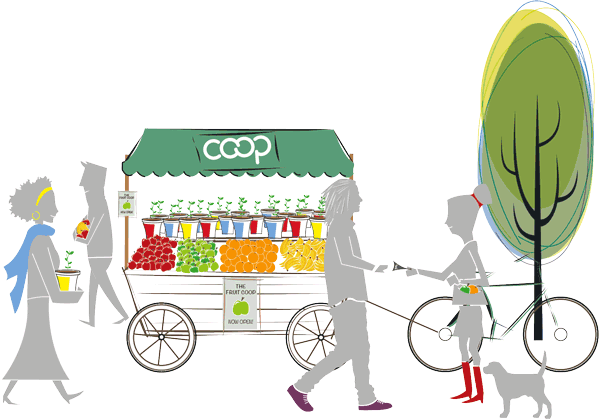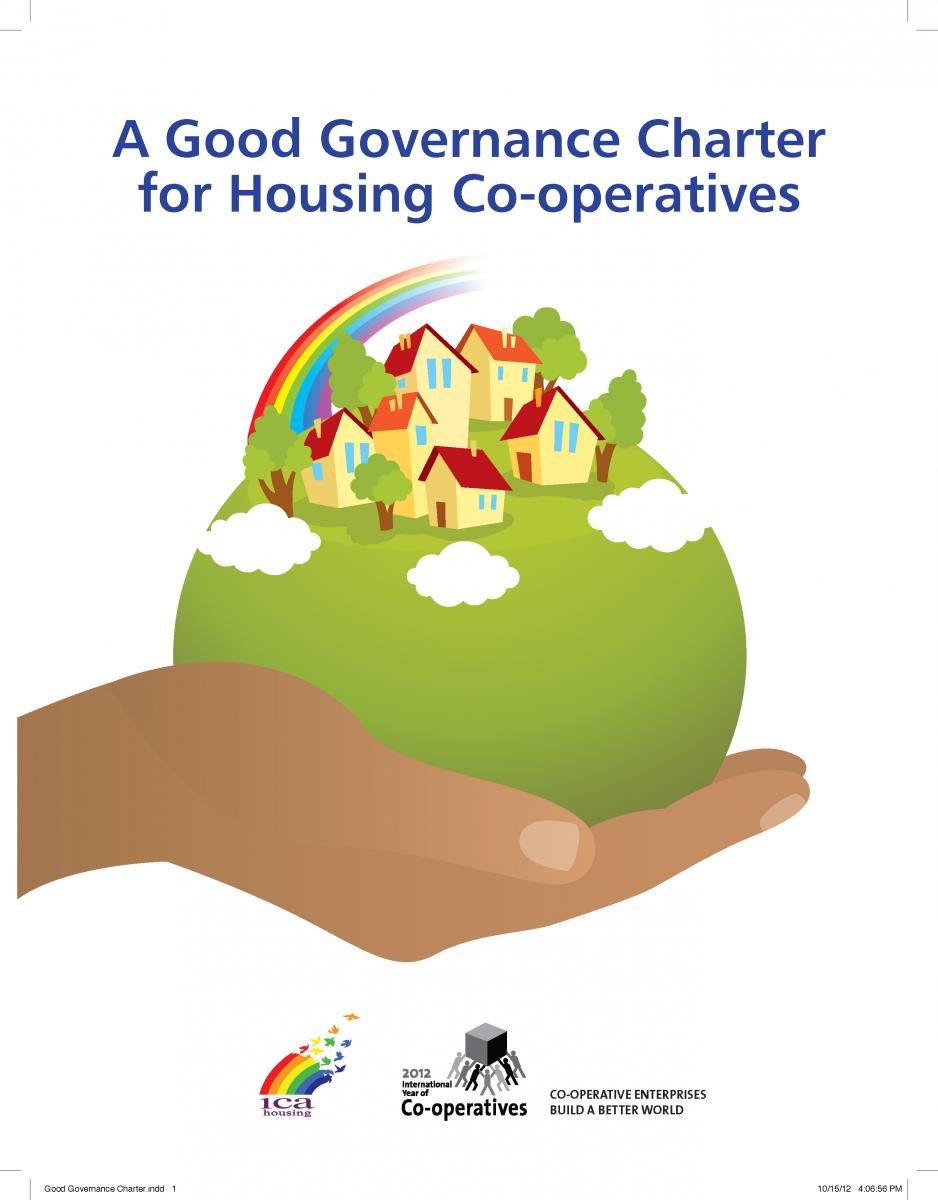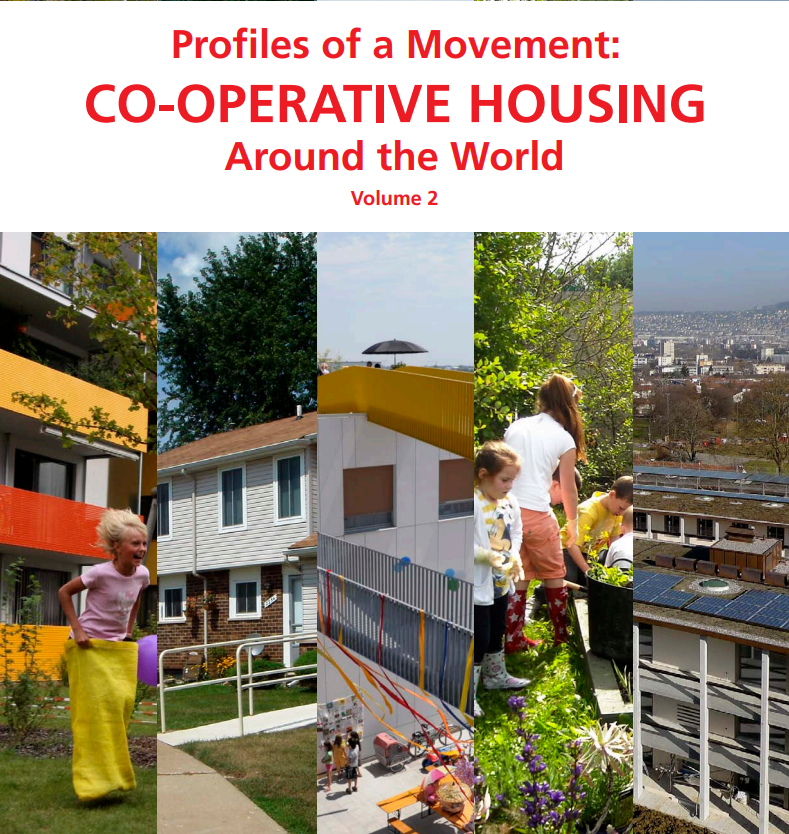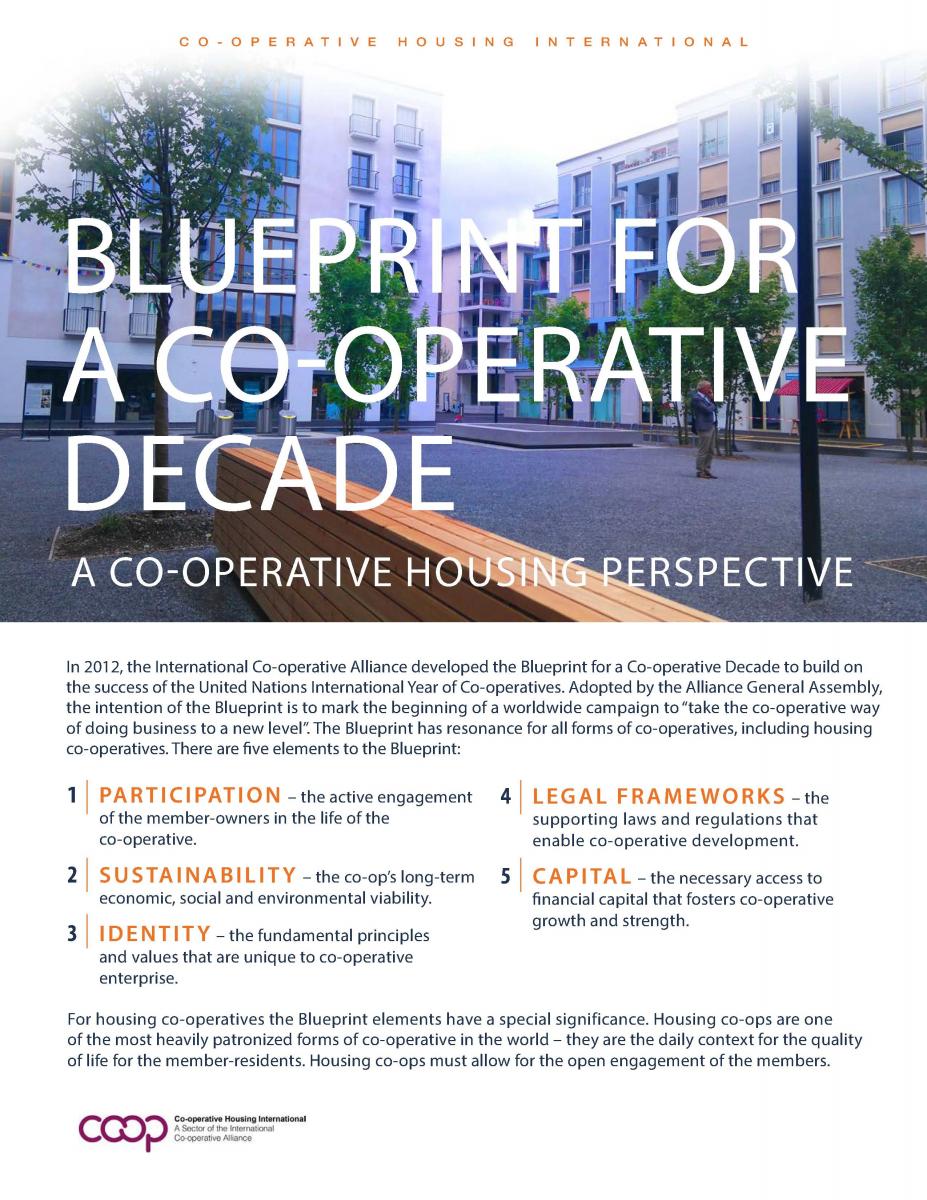About Poland

Chorzowska SM
History and Evolution of Cooperative Housing in Poland
Early Origins Before Independence
Housing co-operatives in Poland predate the country’s regained independence in 1918. Over a century ago, both Poles and Germans founded the first housing co-operatives—referred to as “housing societies”—in the German sector of partitioned Poland. Although relatively few in number (around 40 co-operatives), these early initiatives laid the groundwork for future development.
Growth in the Interwar Period
In 1921, Poland saw the establishment of two primary types of housing co-operatives:
- Lodger co-operatives: These were rental-based.
- House-building or property co-operatives: Members owned their units and shared ownership of the property.
By 1924, there were 676 building and lodging cooperatives in the country.
Post-War Reconstruction and Transformation
World War II inflicted severe damage on Poland’s housing stock. In response, a new cooperative model emerged: housing-administration co-operatives. These received state properties on the condition that members would finance their restoration. Approximately 40,000 housing units were restored under this scheme. These co-ops managed the properties until the restoration costs were fully amortized, after which many were dissolved.
Socialist Era: Centralized Planning and Expansion
After WWII, the Communist regime reshaped Polish housing co-operatives to align with Soviet-style central planning. Housing development became state-controlled, with co-operatives assigned significant responsibilities. The state introduced key support mechanisms:
- A credit system and long-term savings programs
- Land transfers through perpetual leases
- Property sales to housing co-operatives
By 1980, housing co-operatives accounted for 80% of newly constructed dwellings. They also invested in social infrastructure, collaborating with local authorities to build cultural centers, libraries, and youth facilities. By the end of the communist era in 1989, there were 4,021 housing co-operatives with 2.67 million dwellings and 3.5 million members.
Transition to Market Economy (1990s)
With the collapse of the socialist regime in the late 1980s, Poland’s housing policy underwent radical reform. The state stepped back from direct intervention, transitioning to a regulatory role in a market-driven system. Co-operatives, associated with the old regime, faced skepticism.
A key turning point came with the Act of 20 January 1990, which dissolved all cooperative structures except primary co-operatives and the Supreme Co-operative Council. Membership and activity in the cooperative sector declined significantly, although housing co-ops remained prominent.
In 1991, new legislation allowed for the creation of co-operative auditing unions, marking the beginning of a slow recovery of cooperative structures.
Housing Crisis and Liberalization
The economic “shock therapy” of the early 1990s led to a severe housing crisis. Production dropped from 150,000 units in 1989 to just 55,000 in 1996. Even large co-ops, which controlled 50–80% of land in some cities, ceased new development to focus on maintaining existing properties. Waiting periods for apartments in urban areas stretched to 15 years. Social and cultural activities of co-operatives were largely dismantled, and many large co-ops were split into smaller entities.
Privatization and Legislative Reforms
The government promoted privatization by allowing tenants to buy their units at 80–90% discounts. By 1995, 48% of co-op units were owner-occupied (up from 16% in 1988). This figure reached 67% by 2001.
Other reforms included:
- The 1994 Law on Rents and Housing Allowances: Increased rents while protecting low-income families.
- The 1995 Act on Selected Forms of Support of Housing Construction: Revived rental housing co-ops and established the National Housing Fund (NHF), which offered low-interest loans covering up to 70% of construction costs.
Modern Legal Framework
Until 2000, housing co-operatives operated under the general 1982 Co-operative Law. That year, Poland passed the Act of 15 December 2000 on Housing Co-operatives, introducing new rules:
- Members could demand individual ownership of their units.
- The difference in value paid could not exceed 3% of the market value (this was later ruled unconstitutional).
Amendments in 2007 and 2009 reinstated these provisions despite the Constitutional Tribunal’s ruling.
Additionally, Article 26(1) required the formation of a “housing commonwealth” (similar to a condominium) if all dwellings in a co-op were privatized. This transfer of management rights threatened the survival of many co-operatives.
Recent Challenges and Legislative Pushback
In 2007, legislation abolished the cooperative ownership right to dwellings, replacing it with individual ownership, fully financed by members. More recently, two bills that aimed to further dissolve cooperative structures were presented but ultimately rejected by the Polish Parliament in 2011.
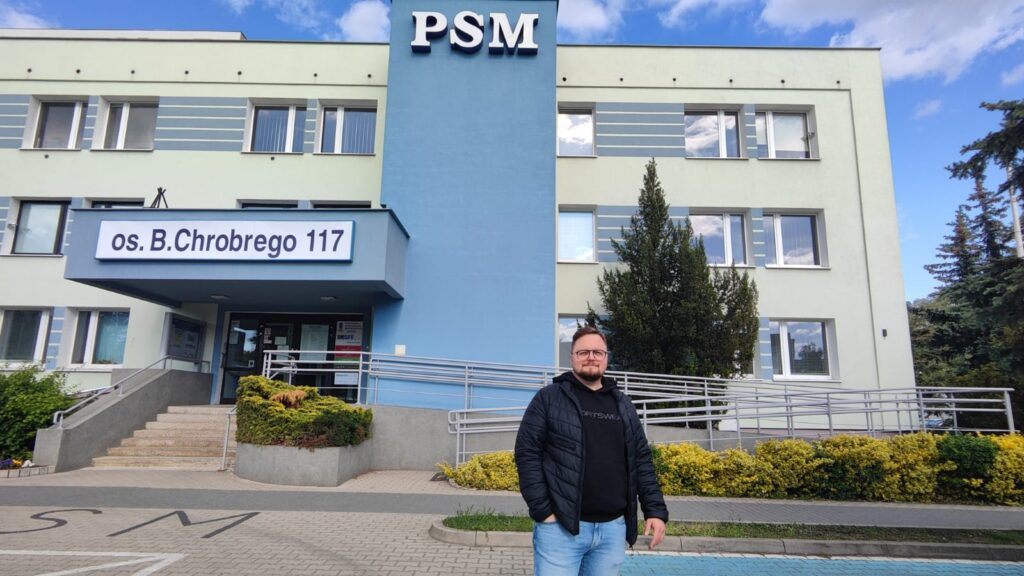
Context: Post-1990 Housing Reform in Poland
Since the early 1990s, Poland’s housing sector has undergone major changes, transitioning from a state-controlled system to a market-driven model. This included the development of private mortgage finance, efforts to expand housing construction, proposals for low-interest, long-term credit, and legal reforms to streamline cumbersome procedures. Despite these efforts, serious challenges remain.
Rising Housing Costs and Limited Affordability
One of the most significant shifts has been the withdrawal of government subsidies and the liberalization of housing and service prices. Under the Communist regime, rents were administratively set and heavily subsidized. Beginning in 1994, reforms aimed at aligning the sector with European Union standards led to reduced rent regulation, culminating in the full deregulation of private sector rents by 2005.
These changes caused a steep rise in housing costs. While Poles had previously spent only 2–12% of their income on housing, the EU-SILC survey shows current average housing expenditures have ballooned to 21.7% of income—rising to 36% for those below the poverty line. Mortgage loans remain expensive and out of reach for many, particularly younger households.
Ongoing Housing Shortage and Inadequate Stock
In terms of availability, Poland has one of the lowest housing supply rates in Europe, with just 348 dwellings per 1,000 inhabitants. The estimated housing shortage exceeds 1.5 million units, and more than 1 million households live in involuntary cohabitation—especially young adults unable to secure independent housing.
Compounding the issue is the aging and low-quality housing stock inherited from the Communist era. Much of it was constructed using prefabricated concrete panels, which now require major renovations and energy-efficiency upgrades. The 2007 amendment to the Construction Law mandates the implementation of Energy Performance Certificates by 2009 for all homes entering the market—marking a step toward addressing sustainability concerns.
Legal Framework and Constitutional Mandates
Article 75 of the Constitution of the Republic of Poland obliges public authorities to support housing development. This includes constructing social housing for those unable to afford full market costs and offering financial assistance to residents in social housing. Authorities are also tasked with enabling citizens to acquire their own homes—creating space for cooperative housing as a viable option.
However, the cooperative housing sector still lacks the legal and financial backing to fulfill this role effectively. Proposals by the national cooperative federation—such as equal access to subsidies for co-op members and preferential land terms—have yet to materialize into concrete policy.
Struggles of the Cooperative Housing Sector
In this difficult housing environment, cooperatives face additional internal challenges: rent arrears, weak management skills, and diminishing relevance. Once the dominant housing developers—producing an average of 68,000 units annually in the 1980s—housing co-ops built only 9,000 units in 2006 and just 5,100 by 2010. Today, fewer than 10% of co-ops engage in development; most limit their role to property management. Although no legal restrictions prevent co-ops from resuming construction, few have the resources or capacity to do so.
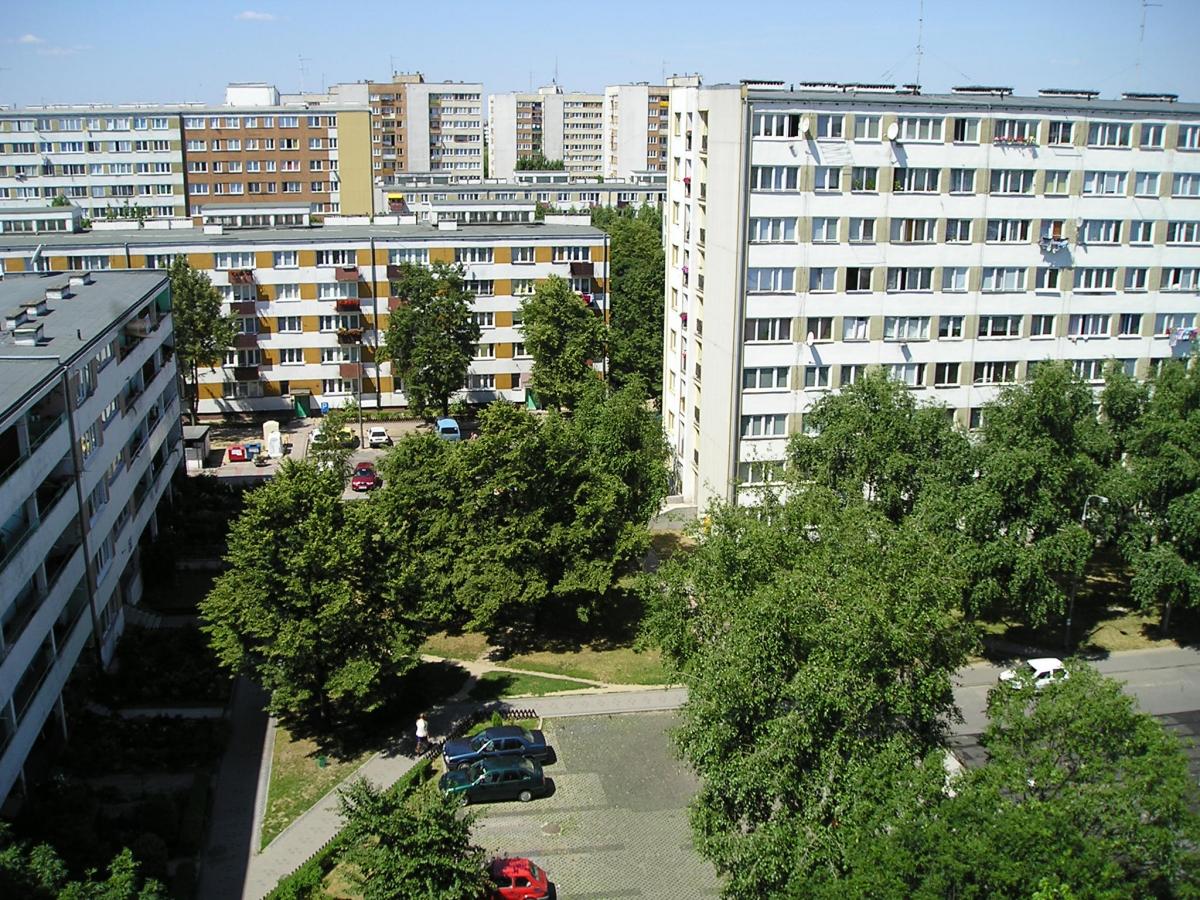
Plocka SML-W
Current Status of Housing Cooperatives in Poland
Although housing cooperatives are no longer the dominant housing provider in Poland, they remain a major component of the housing landscape. As of today, cooperative housing represents approximately 19.4% of the total housing stock. There are around 3,500 housing cooperatives managing more than 2.5 million housing units, serving an estimated 11 million people—nearly one-third of the population.
While many large cooperatives were broken into smaller entities during post-communist reforms, some still operate at a very large scale. In some cases, a single cooperative may have up to 100,000 members.
Shift from Rental to Ownership Cooperatives
Historically, Polish housing cooperatives were divided into two models:
- Ownership cooperatives, where members owned their units and co-owned the building.
- Rental cooperatives, where members were tenants.
Following the economic liberalization of the 1990s, ownership became the dominant model. In 1990, 57% of cooperative apartments were rentals. By 2002, 75% of cooperative units were owner-occupied. Today, nearly all new cooperative housing is built for ownership, and mixed cooperatives (those with both rental and ownership units) are steadily declining.
Currently, about 83% of cooperative dwellings are owner-occupied, and 17% remain rentals—mostly in legacy properties.
Key Characteristics of Polish Housing Cooperatives
Modern Polish housing cooperatives share several defining features:
- Individual unit ownership: Members typically own their unit but not the land or common property, which remains under cooperative ownership.
- Full cost contribution: Members finance 100% of the construction cost through their shares.
- Right to exit: Once construction costs are paid, members can withdraw and form a condominium association.
- Transfer rights: Members can sell their proprietary rights, but the cooperative retains the authority to approve new members.
Financing: Past and Present
Before 1990
Housing cooperatives were financed through a combination of members’ savings and heavily subsidized loans issued by state-controlled banks.
1995–2004 Housing Support Framework
During this period, the state introduced measures to encourage cooperative and social housing development:
- Mortgage interest subsidies for low-income buyers.
- National Housing Fund (NHF) loans covered up to 70% of project costs for rental and social housing co-ops, with 35-year terms and interest rates at half the market rate.
- State-backed renovation loans to modernize prefabricated buildings from the Communist era.
However, starting in 2001, housing tax reliefs were abolished, and by 2009, the NHF was dissolved. The state-owned Bank Gospodarstwa Krajowego (BGK) was required to administer existing commitments but no new applications were accepted after September 2009.
Although discussions about a new financing framework have taken place, no significant progress has been made to date.
Current Public Support Measures
Despite the rollback of national-level financing, municipalities provide housing allowances to support low-income households. These allowances are essential for housing cooperatives, helping them maintain liquidity and upkeep of their estates.
Another key program is the Thermo-Renovation Fund, which covers up to 25% of energy-efficiency improvement loans. Cooperatives frequently use this to insulate buildings, replace heating systems, and improve overall energy performance.
Additionally, some cooperatives have resorted to building and selling additional floors (loft conversions or rooftop extensions) to fund modernization work on aging properties.
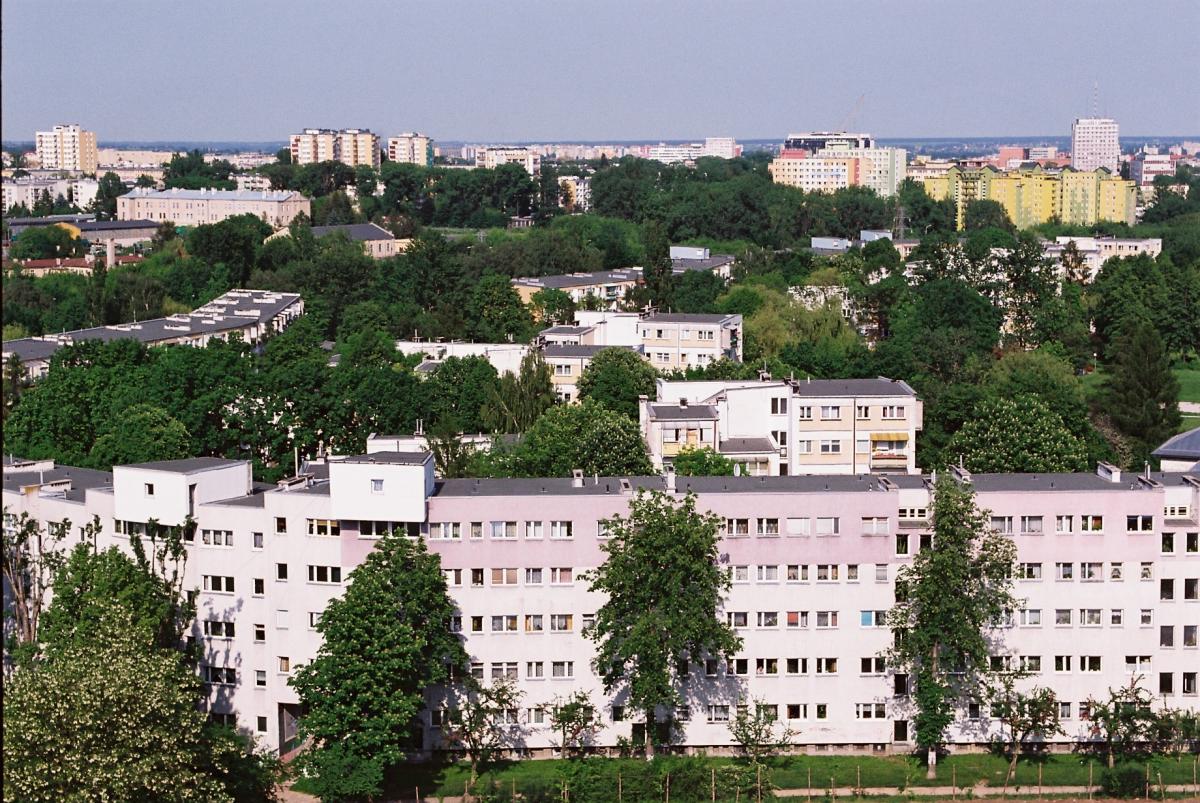
Lubelska SM
Legal Framework for Housing Cooperatives in Poland
Applicable Laws Concerning the Organization of Housing Cooperatives
Housing cooperatives in Poland are primarily regulated by the Act on Housing Cooperatives, which takes precedence over the general Cooperative Law in matters it explicitly covers. Where the Act on Housing Cooperatives is silent, the general cooperative legislation and corporate regulations apply.
Key Legal Frameworks:
-
Act on Housing Cooperatives (Ustawa o spółdzielniach mieszkaniowych): The principal law governing the establishment, governance, and operation of housing cooperatives.
-
Cooperative Law (Prawo spółdzielcze): Applies subsidiarily in areas not regulated by the Act on Housing Cooperatives.
-
Civil Code (Kodeks cywilny): Governs general issues related to ownership, contractual obligations, and property relations.
-
Act on National Court Register (Ustawa o Krajowym Rejestrze Sądowym): Regulates the registration of cooperatives as legal entities.
Applicable Laws Concerning Activities of Housing Cooperatives
Housing cooperatives undertake a range of functions including property management, construction, maintenance, and administration. These activities are regulated by several sector-specific laws:
-
Act on Ownership of Premises (Ustawa o własności lokali): Governs relations between cooperatives and individual unit owners.
-
Act on Real Estate Management (Ustawa o gospodarce nieruchomościami): Covers property management, valuation, and disposition.
-
Building Law (Prawo budowlane): Establishes standards and procedures for construction, renovation, and safety compliance.
-
Act on Spatial Planning and Development (Ustawa o planowaniu i zagospodarowaniu przestrzennym): Regulates land use planning and permits.
-
Environmental Protection Law (Prawo ochrony środowiska): Applies to projects with environmental impact.
-
Act on the Protection of Tenants’ Rights and Municipal Housing Stock (Ustawa o ochronie praw lokatorów…): Relevant when cooperatives rent premises.
-
Accounting Act (Ustawa o rachunkowości): Sets financial reporting and bookkeeping requirements.
Relationship Between Applicable Laws
-
The Act on Housing Cooperatives is the lex specialis and overrides the Cooperative Law in overlapping areas.
-
The Cooperative Law serves as a subsidiary framework, applied only when the Act on Housing Cooperatives is silent.
-
General laws such as the Civil Code and Building Law apply concurrently for specific matters like contracts, property rights, and construction.
-
Additionally, municipal regulations and local zoning plans may impose further requirements depending on the cooperative’s location and activities.
List of Relevant Laws (with Dates)
| Law |
Date of Approval |
Last Update (as of 2025) |
| Act on Housing Cooperatives (Ustawa o spółdzielniach mieszkaniowych, Dz.U. 2001 nr 4 poz. 27) |
15 December 2000 |
1 March 2024 |
| Cooperative Law (Prawo spółdzielcze, Dz.U. 1982 nr 30 poz. 210) |
16 September 1982 |
15 January 2024 |
| Civil Code (Kodeks cywilny, Dz.U. 1964 nr 16 poz. 93) |
23 April 1964 |
1 April 2025 |
| Act on Ownership of Premises (Ustawa o własności lokali, Dz.U. 1994 nr 85 poz. 388) |
24 June 1994 |
12 February 2023 |
| Real Estate Management Act (Ustawa o gospodarce nieruchomościami, Dz.U. 1997 nr 115 poz. 741) |
21 August 1997 |
30 January 2025 |
| Building Law (Prawo budowlane, Dz.U. 1994 nr 89 poz. 414) |
7 July 1994 |
1 March 2025 |
| Act on Spatial Planning and Development (Ustawa o planowaniu…, Dz.U. 2003 nr 80 poz. 717) |
27 March 2003 |
20 February 2025 |
| Environmental Protection Law (Prawo ochrony środowiska, Dz.U. 2001 nr 62 poz. 627) |
27 April 2001 |
15 December 2024 |
| Act on Protection of Tenants’ Rights (Ustawa o ochronie praw lokatorów, Dz.U. 2001 nr 71 poz. 733) |
21 June 2001 |
10 November 2023 |
| Accounting Act (Ustawa o rachunkowości, Dz.U. 1994 nr 121 poz. 591) |
29 September 1994 |
1 January 2025 |
| Act on National Court Register (Ustawa o KRS, Dz.U. 2001 nr 17 poz. 209) |
20 August 1997 |
15 January 2025 |
Legal Barriers and Institutional Gaps
The most significant systemic issue is the fragmented legal framework:
- The Act on Housing Cooperatives (lex specialis) only partially overrides the older Cooperative Law (1982).
- This dualism creates interpretation challenges, particularly concerning:
- Membership rights and obligations,
- Internal governance flexibility,
- Treatment of tenants vs. owners.
This has resulted in prolonged litigation and inconsistencies in judicial practice.
Lack of Recognition in National Housing Strategy
Housing cooperatives are not formally included in core state-supported housing programs (e.g. Mieszkanie Plus, TBS/SIM system). Despite their social function and constitutional compatibility (Art. 75 Konstytucji RP), they:
- Receive no dedicated public subsidies,
- Are excluded from strategic planning documents,
- Are not treated as public or social housing providers.
This limits their access to public land, grants, and infrastructure support – despite their relevance in delivering affordable, stable housing.
Sector Representation and Self-Governance
ZRSMRP: Main National Body
The primary national organisation representing housing co-operatives is the Auditing Union of Housing Cooperatives of Poland (ZRSMRP), established in 1993. It is governed by a National Congress, Supervisory Council, and Board of Directors. According to Polish law, it serves as an official auditing union, with responsibilities including:
- Auditing cooperative operations
- Representing co-ops nationally and internationally
- Providing training, advice, and publications
- Fostering partnerships with other cooperative organisations
ZRSMRP has 620 member co-ops (out of approximately 3,500), representing around 1 million individual members, and acts as the main national voice for the sector.
Other Organisations
Smaller National and Regional Auditing Unions also exist, though membership is voluntary and many cooperatives remain unaffiliated.
The National Union of Tenants and Co-operators was created in 1997 as a grassroots alternative to existing cooperative structures. It focuses on member rights, legal advocacy, and education—particularly for residents frustrated with internal governance and perceived inaction.
The National Co-operative Council functions as the apex body for all cooperative sectors in Poland, including housing.
Advocacy and Legislative Challenges
ZRSMRP and other cooperative advocates are pushing for the recognition of ICA principles in European law, citing widespread misunderstanding of cooperative models among Polish officials. The idea has gained some traction at Cooperatives Europe, but lacks unified backing from EU member states.
A more immediate and practical concern is that new housing cooperatives cannot currently be established due to inaccessible cooperative funds. This financial deadlock makes co-op development prohibitively expensive. Energy providers often inflate utility costs, yet blame co-op boards—fueling tension between boards and members, despite a generally strong internal cooperative atmosphere.
Systemic Obstacles and Market Bias
Poland’s constitution once stated that every citizen had the right to buy an apartment. However, housing policy has since shifted toward a strict market-based approach. Today, the government provides minimal support for housing cooperatives and instead prioritizes private developers, despite the cost difference:
- Housing co-ops: ~3,000 PLN/m²
- Private developers: ~6,000 PLN/m²
With over 2 million housing units still needed, this reliance on private development is not meeting demand. At the same time, housing co-operatives are restricted from accessing their own development funds, limiting their ability to respond to this shortfall. This policy bias is eroding the role of housing cooperatives in the market and threatening their long-term viability.
Resources Tagged "Poland"
The Cooperative Identity — the shared values and principles that unite cooperatives worldwide — is being revisited for the first time in decades. The International Cooperative Alliance (ICA) has released Discussion Draft 2 of ...Read More
Governance Global Study
The International Legal Research and Analysis Initiative (ILRAI) of the International Cooperative Alliance, coordinated by Cooperative Housing International, provides the first comparative legal analysis of cooperative housing fra ...Read More
Legal Global News Article
L'habitat coopératif offre des logements abordables à long terme, gérés par les résidents, avec des avantages sociaux, économiques et environnementaux avérés. Malgré son impact mondial, ce secteur reste méconnu.Read More
Financing and Development Global Report
Explore public policies supporting cooperative housing worldwide in this comprehensive report. Discover how governments and cooperatives collaborate to create sustainable and affordable housing solutions globally.Read More
Research Global Research Paper
The Commission's final report on Cooperative and Mutual Housing (Bringing Democracy Home) highlighted the need for consideration of the role that cooperative and mutual housing could play in the national housing strategy. The Fina ...Read More
Financing and Development Global Report
Par cette publication, nous souhaitons ouvrir le débat sur le logement en tant que droit fondamental et enjeu métropolitain, en mettant en lumière l’expérience de grandes métropoles et dans l’espoir d’inspirer des idées nouvelles pour aborder cet enjeu absolument fondamental de l’urbanisation moderne.Read More
Advocacy Global
In 2000, United Nations (UN) member states recognised the need to build global partnerships for development and the exchange of expertise as one of the Millennium Development Goals. Across the international development field, part ...Read More
Financing and Development Global
New report: The Capital Conundrum for Co-operatives "The Capital Conundrum for Co-operatives", a new report released by the Alliance’s Blue Ribbon Commission explores ideas and options available to co-operatives that need suitab ...Read More
Financing and Development Global
Financing the development of housing co-operatives is a challenge and more so in time of financial restrictions and uncertainty. CHI members discussed the issue during a seminar held in November 2009 in Geneva. Presentations w ...Read More
Financing and Development Global
The Forest Products Annual Market Review 2013 reports that the development of new refinement processes has led to the production of new and more affordable wood based products such as cross-laminated timber (CLT). The report sta ...Read More
Sustainability Global
Updated Guidance Notes on the Co-operative Principles, edited by David Rodgers, former President of Co-operative Housing InternationalRead More
Governance Global
The ILO views cooperatives as important in improving the living and working conditions of women and men globally as well as making essential infrastructure and services available even in areas neglected by the state and investor-driven enterprises. Cooperatives have a proven record of creating and sustaining employment – they provide over 100 million jobs today; they advance the ILO’s Global Employment Agenda and contribute to promoting decent work.Read More
Legal Global
Cooperative housing offers long-term, affordable homes governed by residents, with proven social, economic, and environmental benefits. Despite its global impact, the sector remains under-recognized.Read More
Financing and Development Europe Report
Student housing cooperatives have become very popular in the USA and many of these housing co-operatives are members of organizations such as NASCO. Unlike a resident who acquires shares at market rates to earn the right to occupy ...Read More
Community Global
The Good Governance Charter for Housing Co-operatives was launched at the ICA Housing Plenary in Manchester in November 2012.It has three parts:A 10-point set of good governance practicesAn interpretive statement for each good p ...Read More
Governance Global
This second volume of Housing Co-operative Profiles focuses on African countries, showcasing the ingenuity and commitment of cooperators working under difficult conditions. It offers insights into the legal, financial, and historical contexts of housing co-ops, aiming to inspire broader adoption of the model as a solution to the global housing crisis.Read More
Community Global Report
The Blueprint for a Co-operative Decade is a worldwide campaign to “take the co-operative way of doing business to a new level”. The five key elements of the Blueprint are participation, sustainability, identity, legal frameworks and capital. The Blueprint is particularly relevant to co-operative housing and the Blueprint interpretation for co-operative housing below explains how.Read More
Governance Global


